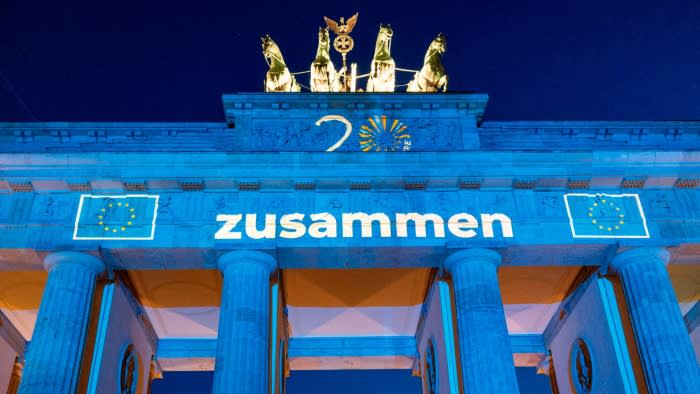
Unlock the Editor’s Digest for free
Roula Khalaf, Editor of the FT, selects her favourite stories in this weekly newsletter.
Twenty years ago this week, 10 countries — eight of which had been part of the communist bloc — joined the EU in a Big Bang enlargement. Despite some western misgivings at the time, this has been an achievement of historic importance. It was a project to create a “Europe whole and free” and nurture liberty and prosperity across its central and eastern portion, much of which had long been under the sway of various foreign empires and powers. Its success should strengthen the EU’s mettle as it grapples with the imperative of admitting a new wave of members — including war-torn Ukraine.
EU membership succeeded, by and large, in cementing the sweeping democratic and economic reforms that the prospect of joining had incentivised before 2004. It proved a powerful force for economic convergence, through EU funds and foreign investment that helped turn many of the new members into manufacturing and export powerhouses. Together with Nato protection — the vital other side of a two-sided coin — it created the conditions for countries to make the most of their restored or newly-acquired sovereignty to build fast-growing market democracies.
There were inevitable pitfalls. Tensions arose between enjoyment of sovereignty and the need to cede some to a supranational EU. Some parts of society resisted the embrace of liberal social values that they felt ran ahead of local sentiment. Some political and business circles feel too much of the economy was ceded to foreign ownership. Free movement of people, though seen as a prize of membership, led to population outflows and brain drains — now being partially reversed. Such factors fanned populist nationalism that led to democratic backsliding, notably in Hungary and, on and off, in Poland.
East-west migration helped to fuel nationalist parties, too, in some western EU states. It was a factor in Brexit, robbing the EU of a heavyweight member. Yet the expansion to today’s 27-nation bloc has enhanced the EU’s role as one of the three major global forces alongside the US and China.
Beyond the 2004 joiners, however, and Romania, Bulgaria and Croatia which joined subsequently, political and economic progress in other former communist bloc countries has been more halting. They became a “grey zone” subject to a struggle for influence with a resurgent and revisionist Russia — culminating in Moscow’s full-scale invasion of Ukraine in 2022.
That is why the next enlargement is so important: to secure these in-between countries as part of a free, democratic Europe extending to the frontier of Putin’s Russia. This new Big Bang will, no doubt, be harder. There are serious questions about how ready or committed some applicants are.
Ukraine, which before Russia’s devastating invasion was still burdened with corruption, weak rule of law and low productivity, presents a special challenge. Its accession process must run in parallel with winning the war, and postwar rebuilding. But the Vienna Institute for International Economic Studies says that, measured against the economic criteria, Ukraine is not so different from the joiners of two decades ago. Admitting it today would expand the EU’s output and population by roughly similar proportions to Poland’s accession in 2004.
The EU must ensure this enlargement process allows candidates to receive the rewards of reform in phases rather than all at the end. EU governance needs revamping, too, to ensure it can function at 35-plus members — including expanding majority voting and allowing “coalitions of the willing” to press on with deeper integration. None of this will be easy. But the geopolitical stakes are today far higher than in 2004. Along with ensuring Ukraine prevails, the best way to safeguard the achievements of the last EU expansion is to move ahead boldly with the next.
Read More: World News | Entertainment News | Celeb News
FT






